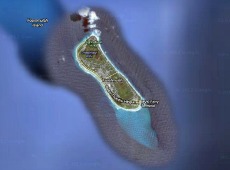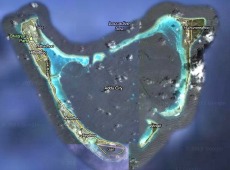The United Nations Special Representative of the Secretary General on Violence Against Children, Marta Santos Pais, has called on the government to find an alternative for, or abolish, capital and degrading punishment against minors.
Pais made the comments at a press conference held on Wednesday, together with Acting Minister of Gender, Family and Human Rights Azima Shakoor, at the conclusion of a six day visit to the Maldives to “support national efforts to address concerns” about the case of a 15 year old female rape victim sentenced to a 100 lashes on charges of fornication.
“My visit was sped up because of the case of this 15 year-old. As you know, the whole world is following this very closely with concern, for a number of reasons. The most important one is that we are talking about someone who is very young, who has been the victim of a sequence of situations that are very traumatic, and which has certainly affected her well-being. And which should not put at risk the way she looks at her future,” Pais stated.
“We have been concerned naturally about the opportunities that seem to have been missed in the process, in the first stages of the judicial procedures that were carried out. At the same time we feel encouraged by the fact that not only were there expressions of condemnation by the President, the government and the Maldivian civil society, but there is an appeal for her now,” she continued.
“We are very confident that the situation will be globally assessed in the light of the best interests of the child, and the assumptions made about the capability of a girl of 15 years of age to channel such decisions about one’s life will be taken into consideration,” Pais said.
“In her case, as well as the other case mentioned of capital punishment, as you know, there is a very important trend across the world. The first is to recognise that the Convention on the Rights of the Child and other international treaties in fact consider that these forms of sentencing are not in conformity with human rights. And these are treaties ratified by the Maldives, and as you know, the Constitution of the Maldives recognise the primeness of these, providing guidance to act in line with these treaties including when courts are applying or interpreting laws and constitution,” the Special Representative continued.
“And secondly there is a trend visible in many countries, including muslim countries, to abolish this form of sentencing and also to find alternatives to deal with children and young people who are in such situations. So we are very hopeful that these options will be taken under consideration in Maldives in these particular cases, and other similar cases that may come up,” she stated.
Former Attorney General and Acting Gender Minister Azima Shakoor admitted that “there were a lot of misses in the 15 year old’s case”, adding that the matter could have been better handled if the state had acted earlier, and if the necessary systems were more strongly built.
Action by the state
The Special Representative welcomed the establishment of a Child Protection Committee by President Mohamed Waheed Hassan, noting the importance of pushing for change to prevent similar cases from happening again, calling the girl’s case a “paradigmatic of the wider situation of violence against children.”
Pais said that she had conducted discussions with government officials, parliamentarians from across the political spectrum, other political actors, members of the judiciary, national institutions and relevant civil society organisations during her brief visit.
While noting that she had observes a common “reaffirmation of the international commitments undertaken by the Maldives to safeguard the rights of the child and ensure the implementation of the CRC” and other ratified conventions, she added that the country “now has before it a critical opportunity to translate these commitments into tangible legal, policy and programmatic action”.
Pais also emphasised that “incidents of violence still remain hidden and concealed, and are sensitive to be raised as a public concern, and difficult to report.”
She noted that in the recent past, significant tools and studies have been developed to address cases of violence, abuse and exploitation, including pieces of legislation like the Domestic Violence Act.
“Steady action is of essence”
Special Representative Pais said that despite the current action being taken by the state, a lot more steady action needs to be taken in the country to protect the rights of the child.
She recommended that awareness campaigns be carried out to prevent social acceptance of violence against children. Additionally, she stated that it is crucial to focus on capacity building programmes for teachers, social workers, law enforcement officials, judges, prosecutors and other child protection actors as they are in a unique position to safeguard children’s protection from violence and intervene in case such incidences occur.
Also among her recommendations is the importance of building upon the country’s Constitution and passing progressive legislation for the protection of human rights and children’s rights.
“It is imperative to improve in the legislation a clear legal prohibition of all forms of violence against children, including in the home, in care and justice institutions, as well as a form of criminal sentencing,” Pais stated.
In conclusion, Pais referred to the upcoming September 7 presidential elections, and called on all political actors to refrain from involving children in politics and from sidelining children’s right issues.

